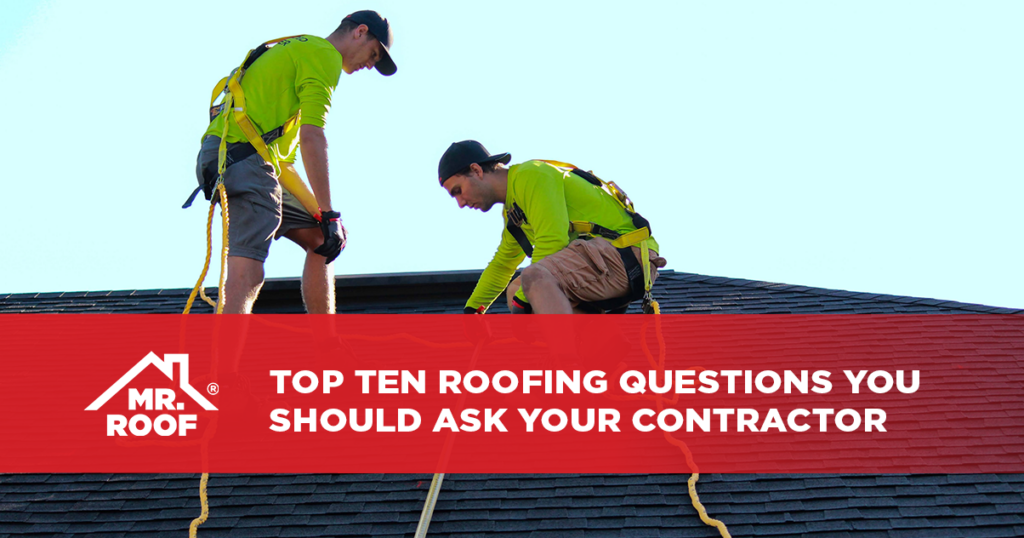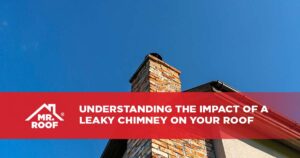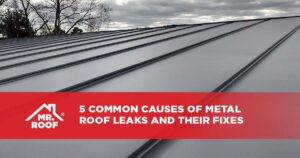Your roof is one of your home’s most important parts, but this often means its repair can be among the most costly. Knowing the right questions to ask your contractor will give you confidence that the job is being done right. When you’re ready to repair or replace your roof, schedule time to speak with a contractor. Ensure all your questions are answered before you sign any contracts.
The following are among the top questions we recommend you ask your contractor:
1. Is your business local?
This may not seem like a very important question to ask, but in the event that there are any problems with the process, installation, or communication, you’ll want to know how to locate the contractor. However, do not simply take their word that they are local. Ask for a physical, non-P.O. Box address to verify.
In situations where natural disasters may cause widespread damage, it’s common for large companies to come from long distances to take advantage of the guaranteed business. Because they are not local, however, there is little incentive to make sure the work is done correctly. They often complete repairs and replacements to the minimum requirement for code in order to speed through as much business as possible.
One of the best ways to double-check a company’s location is to use the internet. Business-oriented sites like the Better Business Bureau can help to put your mind at ease by verifying information the contractor provides about their location.
2. How long have you been in business?
This question can help to establish the history of the company through its experiences and its reputation. In the digital age, it is easy to find reviews and information on most companies through online reviews and sites like the Better Business Bureau. If a company claims to have been in business for ten years but they have no digital footprint, that could raise further questions. It does not mean they are untruthful but requesting customer references could be an important follow-up.
You may find a new contractor offering lower prices than a more established contractor as a way for the new guy to try to wedge into the business. However, this kind of pricing could also indicate inexperience. If the company provides service, something goes wrong, and they are no longer in business, there is now no one to stand behind the work that was completed. Contractors with a well-established history in the community are much more likely to be around for future work.
3. Are you appropriately licensed, bonded, and insured?
All contractors should carry worker’s compensation and liability insurance. That means they are responsible for their own worker safety as well as damage caused beyond the work. Without this important insurance, a homeowner is left to foot the bill if something goes wrong since the worker could file a claim with the homeowner’s insurance. In addition to this insurance, they should carry general liability and company vehicle insurance as well.
Bonding is when a contractor is connected to another company who assumes the responsibilities of the contractor should they go out of business in the middle of a job and repairs are left to be finished. In this case, the bonding company takes on the responsibility of finishing the job.
Licensing refers to the contractor being registered with the state’s licensing board.
4. What warranties do you provide?
Because of the vast scale of roofing jobs, warranties are common. There are warranties that cover the materials, and there are warranties that cover the workmanship. Generally speaking, the warranty will provide some idea of the type of workmanship that went into the roofing job. If the warranty is only a couple of years, they may have used materials that they will wear before that time. If it is warrantied for a lifetime, then they trust their workmanship has been done thoroughly and appropriately. The cost could impact the materials, which would then impact the warranty. Spending as little as possible may not always be the best route when hiring a contractor.
5. Will my home and property be protected throughout the work?
Even though your roof is being repaired or replaced, that doesn’t mean other elements of your property and home should become collateral damage. It is the responsibility of the contractor to protect your lawn, lights, and landscaping. It is important to know what the process looks like and exactly how they intend to provide protection. Will there be appropriately angled tarps and tarps that catch debris? Will they be spreading supplies out on your lawn? Is there a cleanup process so that loose nails and materials don’t later puncture tires or feet?
In some cases, contracts may have fine print somewhere that says, “Not responsible for damage.” Make sure that your contractor understands they are working on the roof, and it is their responsibility to protect your home. If it was in working order and in good condition when they started, it should still be when they finish.
In addition to general protection, you should also inquire about how excess material and refuse will be disposed of. There should be a process in place, and it should not be left to you.
6. Are your roofers subcontractors?
Similar to ensuring you are working with a local company, it is important to know exactly who is doing the work. If they use subcontractors, you will want to inquire about their licenses, bonds, and insurance as well. Although you are working with a contractor, they may be acting as more of the “middle-person” instead of the primary. In a sense, you are going to use all the questions you would ask the contractor to ask about the subcontractor.
7. Will the owner be available to talk to me if there is a problem?
While many owners stand behind their business and understand the importance of customers, some roofing companies will do everything they can to avoid customers who may have an issue. Ask a contractor with whom you should speak if there is an issue or if there is something you should know. If you aren’t able to speak to the owner, then you should ask yourself if that owner really believes in their business. The buck stops somewhere in every business, and if the contractor or the roofing company is going to give you the runaround, they may be hoping you will get frustrated and simply “go away.” Know upfront whom you can go to and then hold them accountable.
8. Has your company been certified by any shingle manufacturers?
In most markets, shingle manufacturing companies will choose a “top 10” of the roofing companies in the area that are certified to install their product. This doesn’t indicate there is some back door deal that exchanges money between the two, but it does mean that the manufacturing company trusts the contractor and the roofing business to properly install the product to their specifications. That is a good sign when it comes to quality, consistency, and reputation. This is also a sign that the company to whom you are speaking is established in the community and is not necessarily a larger company just coming in.
9. Will I receive a written estimate first?
Whenever you are working with contracts, it is important to preview the contract before signing. Receiving an estimate puts everything that you and the contractor will agree to in writing. It takes the guesswork out of the bill and leaves little room for surprises. Yes, it may be an estimate. As the work progresses, changes may happen, but it is an opportunity to establish a base with the contractor. You should measure, take pictures, and note the materials to be used so that you can help hold the contractor accountable.
10. Will my project be done on time?
A contractor will give you an estimate of the amount of time it should take under normal conditions to finish the job. Of course, no one can predict the weather, but there are elements that the contractor has control over, and it is their responsibility to keep the project moving forward on schedule. You may want to consider ensuring your contract has a “no later than” clause that will void the contract if the work is not completed by that time.
Choose the contractor that is right for you
These are just a few of the types of questions you can ask, but they should give you an idea of the kinds of information that is most important when you are speaking with a roofing contractor.
Asking the same questions to multiple contractors allows you the opportunity to compare them and ensure you have hired the right people for the job. A roof is important, but what it protects is even more important. A leaky or damaged roof can be harmful to your home and your loved ones. Don’t entrust the safety and integrity of your family and your valuables to just anyone. Seek out a local professional with a strong history within the community. Contact Mr. Roof today.









